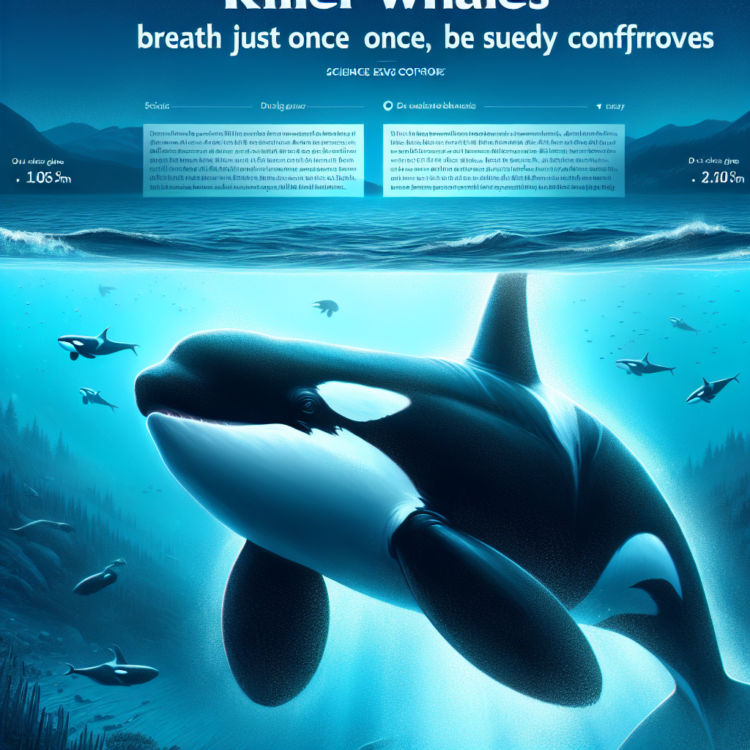A new study has confirmed a long-held assumption: that orcas take just one breath between dives.
A new study has confirmed a long-held assumption: that orcas take just one breath between dives.
The researchers used drone footage and biological data from tags suction-cupped to 11 northern and southern resident killer whales off the coast of B.C. to gather information on the animals’ habits.
Whaley fun facts
Published in PLOS ONE, the study found that residents spend most of their time making shallow dives, with the majority of dives less than one minute. The longest dive recorded was 8.5 minutes, for an adult male. “Killer whales are like sprinters who don’t have the marathon endurance of blue and humpback whales to make deep and prolonged dives,” said co-author Dr. Andrew Trites, professor in the UBC Institute for the Oceans and Fisheries (IOF).
For how many fish could an orca wish?
Confirming orcas take only one breath between dives allowed the researchers to calculate how many litres of oxygen adults and juveniles consume per minute. This provides another piece of the puzzle in estimating orca energy expenditure, and eventually, how many fish the animals need to eat per day. “Researchers can then work out if the orcas are getting enough food, including the endangered southern residents, a key factor in their conservation,” said first author Tess McRae, IOF masters student.
Breathe like an orca
Killer whales in the study took 1.2 to 1.3 breaths per minute while resting and 1.5 to 1.8 while travelling or hunting. Comparatively, humans tend to take about 15 breaths per minute when resting and from 40 to 60 while exercising. “It’s the equivalent of holding your breath and running to the grocery store, shopping, and coming back before breathing again,” said co-author Dr. Beth Volpov, IOF postdoctoral fellow.
Journal
PLoS ONE




